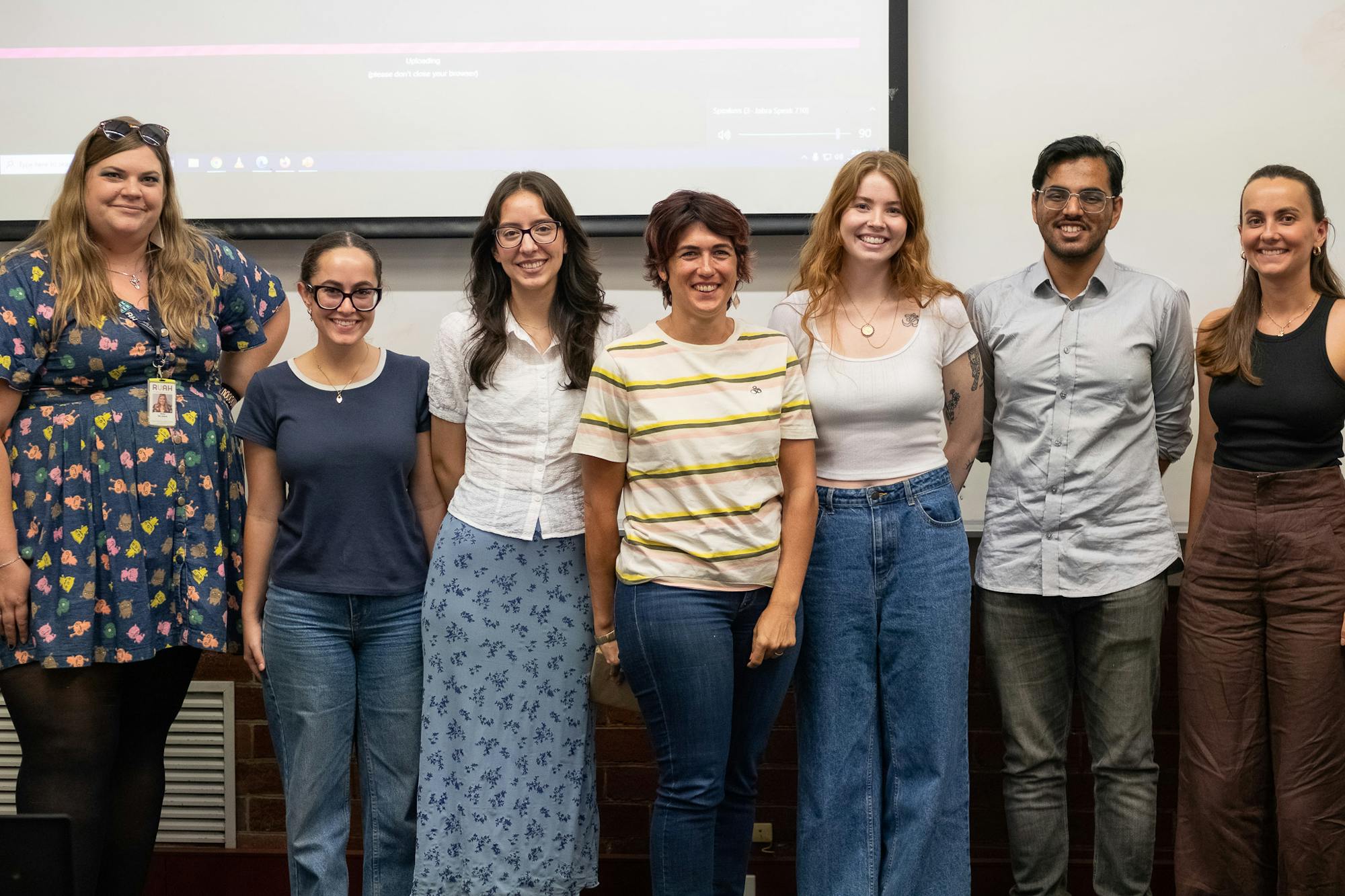Main image: RUAH Community Services staff Amy de Klerk, Estelle Dogbe and Alex Charleston (left, centre and right) with students Kasia Kelly, Annabella Jaramillo, Keisha Ruane and Kamal Hassan.
A group of UWA students recently had the opportunity to work with RUAH Community Services on a project to mobilise community advocacy for increased income support payments.
Taking part in UWA’s Approaches to Wicked Problems unit, offered through the McCusker Centre for Citizenship, Annabella Jaramillo, Kamal Hassan, Kasia Kelly and Keisha Ruane formed one of four student groups working with industry partners.
Annabella is majoring in Law and Society and Criminology in her UWA Arts degree.
“Our group’s brief was to come up with effective ways to lobby the government to raise income support payments,” Annabella said.
“We produced a proposal and plan for a website that would mobilise advocacy in the community and educate community members on the shortfalls of current income support.
“Working with Estelle, our project sponsor from RUAH for this unit, was an experience I hadn’t had in university before. We were able to visit RUAH’s homelessness hub and see the work they do, providing people with access to resources, referrals to services that can help, and practical support like a place to charge their phone.”
Keisha, a Psychology student, said that she decided to enrol in Approaches to Wicked Problems because she wanted an opportunity to contribute meaningfully to initiatives tackling the systemic roots of social inequalities.
“The prospect of working closely with organisations involved in the Equity Project [the key industry partner for the unit] to actively address complex social issues was a major drawcard,” Keisha said.
“We designed the website to serve as a catalyst for change, encouraging individuals to participate in advocacy tools that call for government policy reform. By undertaking this unit, I learned the profound impact of collective action and the power of informed advocacy in addressing systemic issues.
“This experience was unique due to its focus on applying academic knowledge to real-world problems, encouraging us to think critically and work collaboratively to develop solutions that have tangible impacts. This unit made the learning process deeply personal and impactful,” she said.
Estelle Dogbe, Service Lead – Integrated Service with RUAH, said the students had provided the Equity Project working group with a website design that was ready to be fine-tuned and finalised.
“Annabella, Kamal, Kasia and Keisha worked tirelessly to provide a solution to a very complex and broad social justice challenge – their curiosity and open-mindedness were a pleasure to witness,” she said.
Kamal, studying a Bachelor of Arts majoring in Political Science and International Relations, with a Minor in Active Citizenship, said the unit was challenging, enriching and rewarding.
“Sharing our project in the presentation session was a highlight of my academic journey,” he said.
“This experience not only broadened my understanding of social issues but also strengthened my commitment to social justice.”

